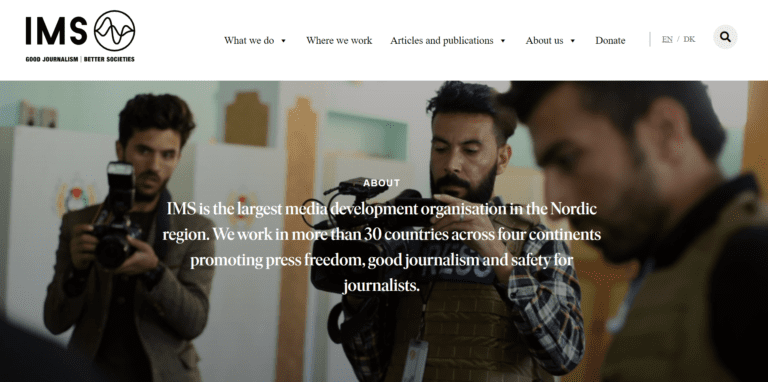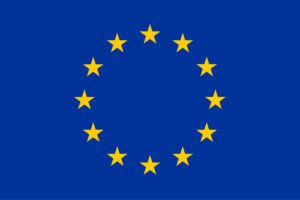The Danish organization International Media Support is one of the leading players in support of media and independent journalism in the North Africa and Middle East region. Known as “IMS”, it supports journalists in the region for many years and has successfully contributed to the creation of a number of media initiatives in the region. Michaël Irving, Director of the North Africa Middle East zone of IMS answered questions to Clothilde Le Coz, Head of Development and Partnerships for the Sahafa Med program and for the Assises du journalisme de Tours, Tunis and Brussels.
According to you, what’s the major issue today for media and journalists South of the Mediterranean?
Media and journalists in the countries in the Middle East and North Africa face major challenges of limited press freedom and intimidation by governments and other non-state actors. The region continues to be the most dangerous for journalists. There are strict laws criminalizing free speech and restricting access to information, leading to censorship and a lack of diversity in the media landscape. Media capture by states and business stakeholders with vested interest are immense. Pockets of excellence exists. However, Independent media outlets face legal and financial hurdles with few funding opportunities aside from diminishing donor funding, limiting their ability to expand and fulfill their vision and ambitions. Digital surveillance is also prevalent with governments using sophisticated tools to block, to monitor and control online content and social media platforms. In 2022, the democratic backslide in Tunisia marks the almost complete backtrack from the democratic progress motivated by the Arab spring.
How do you think donors and implementers can currently better support independent journalism here?
To improve the support to independent public interest media in the MENA region, donors and implementers should provide substantial financial core support to ensure that independent media outlets have the necessary resources to operate sustainably and expand their coverage. This support should be long-term and flexible, providing independent media outlets with the financial stability they need to plan and execute their work effectively, instead of operating like small NGOs with 10 smaller grant with targets defined in the North. The need for long-term core support is expressed in a loud voice by the journalists and media themselves and should also allow for support to administration, salaries and not only content production. It not only enables them to produce high-quality journalism, reach wider audiences, and hold those in power accountable, but also to develop professionally and experiment with other ways of generating income. This should happen in tandem with developing strategic planning capacity, policies, and to provide access to the latest experience from the media industry.
How do you think media development programs can be more efficient to support journalists and media in the region ?
Three main principles for more efficient support for journalists and media in the MENA region are flexibility, long term support, and collaborations. Flexible support should cater to the diverse needs of independent media outlets in the region. Media development programs should provide customized training programs, technical assistance, and financial support that meets the unique requirements of each media outlet. Flexibility also means being adaptable to changing political and economic conditions to ensure that support remains effective. Long term support entails that programmes commit to supporting media beyond what is currently the norm. This implies a strategic decision to ensure that support, and funds are not spread thin, but focused on established, visionary and impactful independent media with high potential, while also ensuring opportunities for emerging initiatives. Collaboration can promote a thriving media ecosystem by encouraging media outlets, journalists, and stakeholders to share resources, knowledge, and best practices. This can include joint reporting projects, cross-border collaborations, and knowledge-sharing events.
- To know more about IMS programs and projects in North-Africa and in the Middle-East : https://www.mediasupport.org/where/#mena



